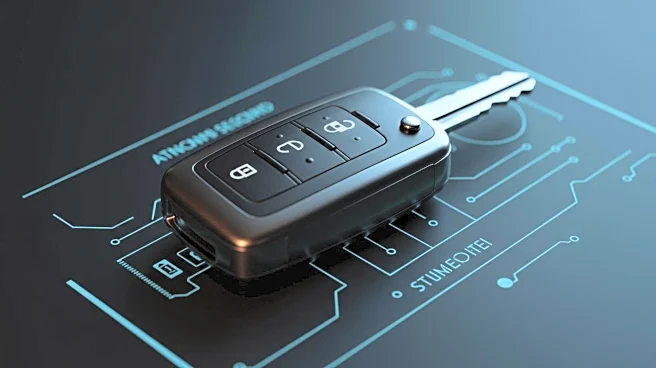What's Happening?
Hyundai Motor Group is addressing a security vulnerability in its Ioniq 5 model by offering an optional upgrade to enhance the vehicle's keyless entry system. This upgrade, available in the UK, costs £49 ($65) and aims to protect against thefts using a Game Boy-like device that can crack the wireless protocols of Hyundai vehicles. The device has been used to steal various models, including the Ioniq 5, Kia EV6, and Genesis GV60, by intercepting signals and mimicking legitimate key presence. Despite the vulnerability stemming from Hyundai's own security mechanisms, the company is charging customers for the upgrade, which has raised questions given the standard five-year warranty on Hyundai vehicles.
Why It's Important?
The security flaw in Hyundai's keyless entry system highlights the growing challenges automakers face in safeguarding vehicles against sophisticated theft techniques. The decision to charge customers for the upgrade could impact consumer trust and brand reputation, especially as Hyundai and Kia have previously settled a $200 million lawsuit over similar security issues. The vulnerability also underscores the need for continuous advancements in automotive cybersecurity to protect against evolving threats. As keyless entry systems become more prevalent, manufacturers must prioritize robust security measures to prevent unauthorized access and theft.
What's Next?
Hyundai's approach to addressing the security flaw may prompt other automakers to reassess their cybersecurity strategies and customer service policies. The company has yet to announce similar measures for U.S. vehicles, which could lead to increased scrutiny and demand for solutions in other markets. Stakeholders, including consumers and industry experts, may call for more transparent and proactive measures from automakers to ensure vehicle security without additional costs to customers. The situation may also influence regulatory bodies to consider new standards for automotive cybersecurity.










